Hunnu Rock is the genre sweeping throughout the continents like…. Well… Like a Khan hunting global domination. But why has this genre beaten the natural order of momentum? Why has this genre in particular taken such a tight grip? And how has it gripped so fiercely and so rapidly? Because as The HU will describe it, it is the music of human beings, it is the connection to human beings. And I describe it that heavy metal connects in all languages. Because heavy metal has always embraced the unique, the wild and the bold…
The HU have forged their own empire and bring with them a universal message; a universal truth – love your homeland, protect nature, show gratitude to your parents, and to love and respect women, your history and your ancestors.
With each pluck of a horsehead fiddle, with each blow of a Tsuur, The HU are unleashing, over one thousand years of Mongolian history and have proved that culture is essential in expression. Sentinel Daily take a deep dive into this ancient civilization, a land mysterious to most; where tradition is seeded and rock is forever.
Solonglo (the band’s interpreter) and I kick things off with some pleasantries before we’re joined by Tempka (lead guitar and vocals) and Gala (rhythm guitar and lead vocals) into this multi-continental Zoom session…
Congratulations on the sweeping success for the band. And we’ll get to your global domination shortly, but first I want to take deep dive on your history and traditions that have such a vital part in your music. The bands roots, which has built on a sound that has been around for over one thousand years and a history dating back longer – what is your main source for the historical references and sounds used throughout the lyrics in your material?
Gala: “There isn’t one single source used, there are thousands of years of history and our Producer Dashka actually writes the lyrics by doing research into the history of Mongols. There are many books Dashka will read and with that he will find real events that have happened and is inspired to write the songs”. How predominant are these traditions in your every day lives? Gala: “The messages that we try to share through our lyrics are universal messages. How to respect our elders and love one another. Our ancestors were people who invented so many new ideas and ways of thinking, such as bringing in the silk road and trade; the phrase ‘don’t kill the messenger’. To bring in a peaceful world. Accepting all religions, which was a creation during the time of Ghengis Khan. Our ancestors accomplished so much in the past and our goal is to bring in great music but to also through our lyrics share these messages of peace and innovation, making people understand who the Mongolians were and still are”.
It is such a fascinating and abstract part of the world, almost untouched from Western influence. So making this connection, bringing your experiences and culture to us has been a concentrated and commendable effort. And yet, reading up on the band – you were all exposed to many different genres of music from a young age; jazz, rock, classical and of course traditional Mongolian folk, had you always wanted to experiment fusing traditional Mongolian Folk music with Rock? Tempka: “The music schools in Mongolia, each department was its own genre; traditional, classical, modern and all of us were able to experience to all these genres. As children, we were exposed heavily into the traditional music but as we grew we were most attracted to the modern instruments. We all wanted to find a balance between mixing modern instruments with our traditional music – everyone shared this desire and goal but not everybody was successful. Our Producer Dashka, found this balance and we had the right background to do it. It was a great thing. We were fascinated to work within this balance”…
What types of challenges did you encounter blending these two styles of music together? I understand your Producer laid a lot of groundwork, so, what involvement did you all have in the creative process and essentially, fleshing this new balance out? Gala: “As an artist we were all fascinated to work on this project. It is relatively a rock genre, yet we had to contribute to the sound that matches the style of this genre – such as changing your vocal range (throat singing). We all had to contribute our abilities, abilities that we learnt as children; our traditional music background, plus the modern instrument had helped us to really, effectively contribute to this project”.
The global appetite for The HU is strong and I’ve never heard of a band sweep the globe so rapidly, it is unprecedented. Did you anticipate how big this would get? Tempka: “We all anticipated success on some level – there is an old saying with Mongolians ‘If you’re afraid, don’t do it, but don’t be afraid if you’re doing it’. That is the mindset we all had and we all had faith in this project. We still do. To create a new genre within the music world and break into it like we have, has been great”. What do you directly attribute to the bands success? Gala: “We attribute all of the success to everyone who was involved with this project. From our background in this music – to the creation of the genre. To our fans to accepting us”. I’m curious, you are all very well educated within your traditional music and as strongly educated within the rock and heavy metal genre, being raised on both – was this balance a seamless transaction or was there a bit more involved? “Not many challenges encountered – on top of playing traditional instruments, we were already live performers, so it was pretty seamless as we were all pretty advanced into our music degrees. It wasn’t much of a challenge at all. It was easy”.
And just like that, our time was up… Don’t despair, The HU will be hitting Australian shores in August and an arsenal of Morin Khuurs will be coming with them.
The HU tour Australia next month – find out where HERE


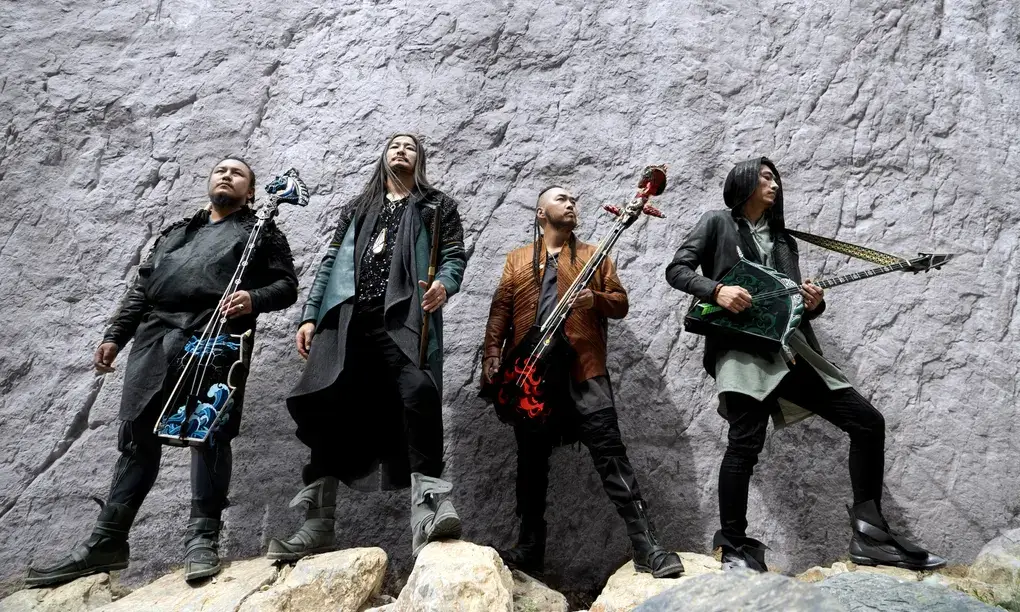
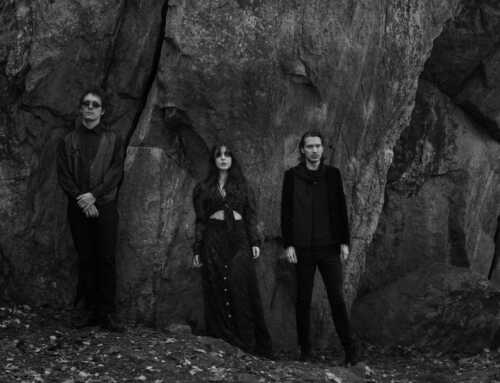

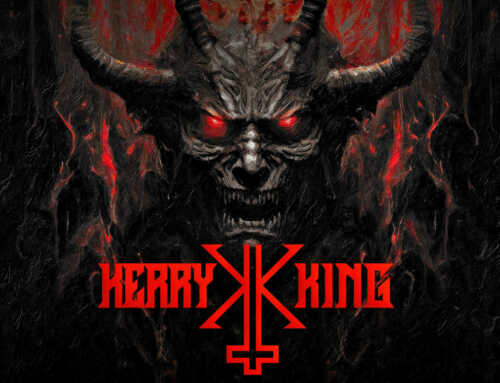
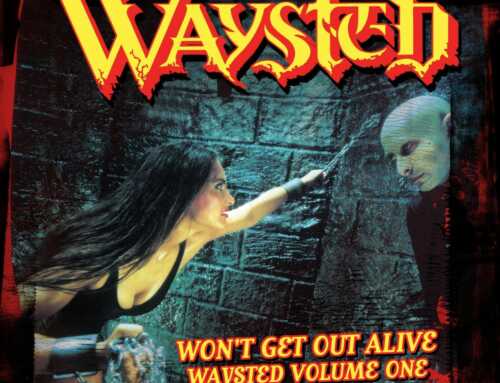
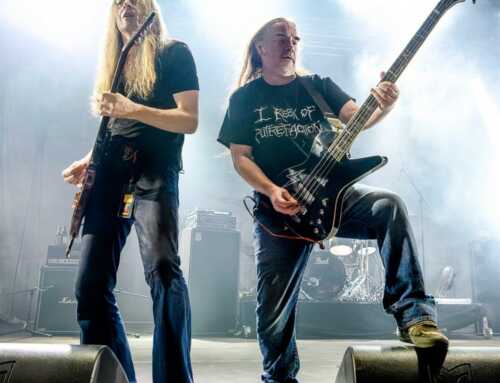
Leave A Comment